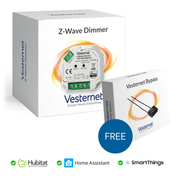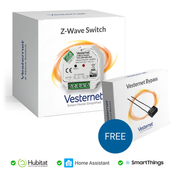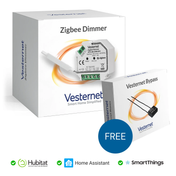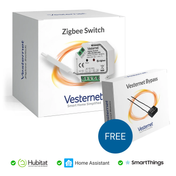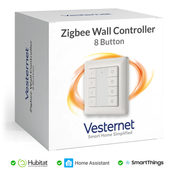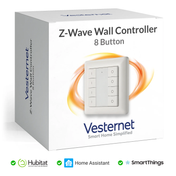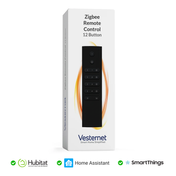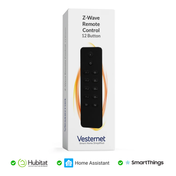In this article we're rounding off our series on Matter by bringing together some of the main points discussed previously.
Who Owns Matter?
The Connectivity Standards Alliance (CSA) has the overall responsibility for creating, evolving, and managing the Matter standard.
According to the Matter web site itself, Matter is the foundation for connected things and is an industry-unifying standard (or common language) that delivers reliable, secure connectivity and is a seal of approval that devices will work seamlessly together, today and tomorrow.
As far as we can tell, from the consumer / end-user point-of-view, this simply means that you'll be able to buy Smart Home devices that show the Matter logo and be confident that they work out-of-the-box together without any of the dreaded compatibility issues.
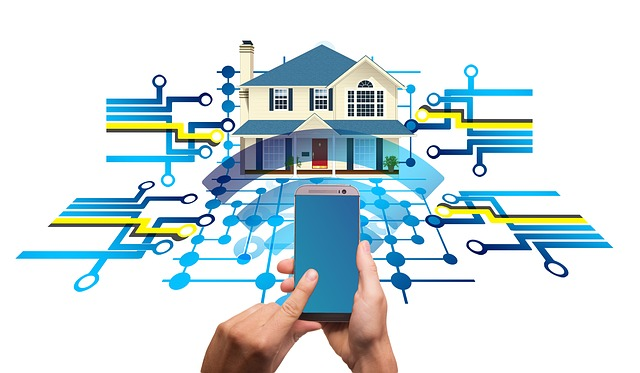
Is Matter Open Source?
Yes, Matter is an open source royalty-free connectivity standard built with market-proven technologies using Internet Protocol (IP). Manufacturers will only incur certification costs and don't have to pay anything to access or use the protocol specification itself.
This means that the Smart Home industry will be taking input from all manner of different people that wish to contribute to the Matter standard. So not only device manufacturers but ordinary end users as well!
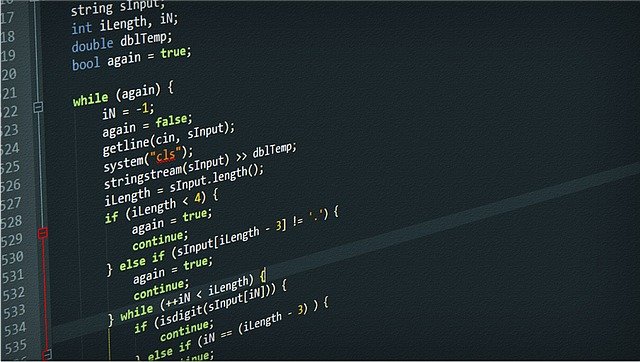
What Devices Will Work With Matter?
As of the date this article was written, Matter is in the final stages of its development phase and none of the CSA vendors have any Matter devices available to purchase right now.
We do expect that to change over the next couple of months though, so keep checking our website if you want all the latest news on this new Smart Home Platform.
There have been many manufacturers that have announced that they will support Matter, both in new smart home devices and adding Matter support to existing Smart Home devices. These include Amazon, Apple, Google, Samsung SmartThings and Philips Hue to name a few. So reset assured that all major smart home leaders will be releasing or updating Smart devices that support Matter.
In the meantime, if you haven’t checked out the newest Zigbee and Z-Wave devices, we suggest taking a look at our latest products list. Remember, Zigbee and Z-Wave smart home devices will work with Matter via their respective hub, gateway or bridge in the future.
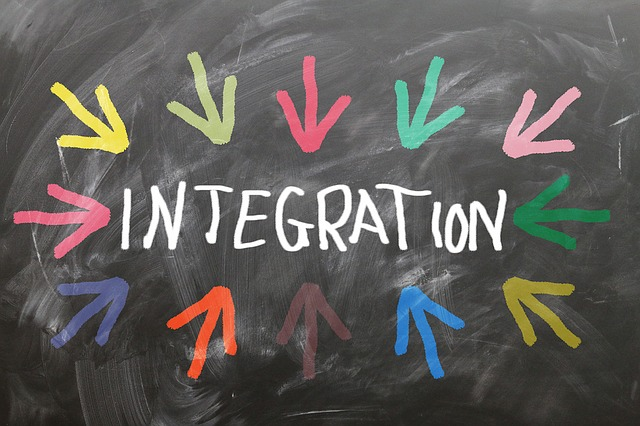
What Is The Difference Between Matter And Z-Wave?
Z-Wave is a wireless communication technology that uses reliable, low-power radio waves that easily travel through walls, floors and furniture, meaning you don't have to rip-up carpets and floors to add new wiring.
Matter on the other hand, aims to be a Smart Home unifying standard, allowing devices across all sorts of disparate technologies (such as Bluetooth low energy, Wi-Fi, Thread) from all the companies that have pledged to release Matter compatible products.
For more information on Matter vs Z-Wave, read our Z-Wave Vs Matter article.
What Is The Difference Between Matter And Zigbee?
Zigbee is a wireless protocol that is used to allow Smart Devices such as light bulbs, sockets, plugs, smart locks, motion sensors and door sensors to communicate with each other over a "PAN" (Personal Area Network).
As a standalone entity you can use this PAN as-is with devices including remote controls, battery powered wall switches and keyfobs for simple control purposes. It won't be particularly smart, but for simple tasks such as turning on the light without getting up to use a light switch it will work perfectly.
If you connect the Zigbee network to a Smart Home Controller (such as one from SmartThings, Hubitat or Homey) then the full potential of Home Automation will be unleashed!
Matter isn't a low-level protocol itself, instead it operates at the higher levels of a Smart Home ecosystem and aims to bring together devices from other technologies (such as Smart Appliances, Smart Lights, Voice Services and Smart Speakers) into one harmonious Smart Home.
For more information on Matter vs Zigbee, read our Zigbee Vs Matter article.
What Is The Difference Between Matter And Thread?
Thread is a low-powered mesh network protocol that is based on the 6LoWPAN technology, an acronym on IPv6 over Low-Power Wireless Personal Area Networks. This in turn uses the same IEEE 802.15.4 wireless protocol that Zigbee uses, with the main difference being that Thread is IP-addressable directly and features AES encryption.
As mentioned previously, Matter is a higher level protocol that runs on top of others. When Matter eventually arrives, it will use Thread for low-bandwidth devices such as door sensors, motion sensors and temperature sensors and WiFi or Ethernet for higher bandwidth devices such as streaming video from a wireless security cameras. In all cases Bluetooth LE will be used for the initial onboarding of Smart Home Accessories onto the Matter network.
For more information on Matter, read our What Is Matter? article.
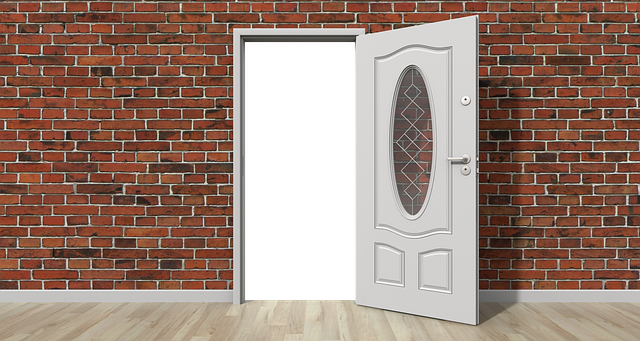
When is the Matter Protocol Release Date?
Smart Home brands are already planning on bringing Matter support to their future devices, with many manufacturers pledging support to the new smart home standard. Google and Amazon have both pledged that their voice assistants will support Matter and the likes of Samsung SmartThings have suggested that their hub will also adopt Matter via a software update.
As to when you'll be able to buy smart home devices that offer Matter compatibility, your guess is as good as ours! The first Matter-certified connected devices were originally planned to launch in 2021 but this target has already been moved several times.
A recent announcement from the Connectivity standards alliance has opened up their unifying connectivity certification programme in readiness for their 1.0 release. The official launch date is set for November 3rd.
Based on previous history, we would expect that the launch event will see some final products showcased from the big manufacturers, but ultimately we don't think these will be hitting the retail channel any time soon! It's not like the manufacturers would have had all these Matter ready products sat in their warehouses ready to ship, given the 1.0 release has only just been finalised. So it will be a while before Matter compatible products are actually on the shelves to buy.

Should I Wait For Matter Before Starting My Smart Home Journey?
Over the past year or so we've mulled this question over many times and our answer has always been: NO!
With the actual release of Matter 1.0 now finalised, has our opinion changed?
Not really, as we've mentioned before, if Matter promises that all devices to work seamlessly together without individual hubs and Apps, we're really struggling to see how this is going to come to fruition.
Sure, some manufacturers that are already in the hub-less camp such as Eve Systems and Nanoleaf might already be down that path, but many of the big players as mentioned previously are simply saying that they will be supporting Matter via their own hubs, bridges or gateways.
If you take a typical Smart Home that has a smattering of Philips Hue bulbs, SmartThings Zigbee sensors, a Ring Alarm system, Amazon Echo Dot speakers and Nest Hub Max screens, then they will already have multiple hubs and Apps that are required to support those devices directly. So what does Matter change there?
A Zigbee bulb from Philips Hue isn't going to talk directly to an Eve Systems Thread based sensor or a Yale Z-Wave based lock. Matter isn't going to change that at all - you'll still need a Zigbee bridge, a Z-Wave hub and something to gateway to your Thread devices such as a Thread Border Router.
And presumably you already have those existing Smart Home devices up and running and working together anyway, right now? So, what will Matter give you? Simplicity in setting up and configuring? Perhaps, but did you find the process of getting your current devices working particularly difficult? Aren't you already using all these disparate devices via Apple Homekit? Or perhaps you've got everything working well with your Athom Homey controller as the "commander in chief" of your Smart Home due to its multi-protocol support?
As it stands today, we don't believe anything has changed, nor will it change in the foreseeable future, likely nothing tangible over the next couple of years.
So our final word on this Matter is essentially: It don't Matter now and it probably won't Matter later, either.
At the end of the day, the end-user, the consumer, will just buy what they buy. They'll be guided by whatever "compatibility" labelling is prevalent at the time, whether that's "Works with SmartThings", "Hubitat Compatible" or "HomeKit" as it is today, or whether devices of the future have a big Matter sticker on them, or a big OCF label on them. Or something else that comes along in the next few years and is hailed as being the next game changing innovation in standards.
As always though, Vesternet will be at the forefront of Smart Home again, offering Matter Home Automation devices if and when they become available, alongside all the existing familiar Zigbee and Z-Wave devices that we currently stock!

